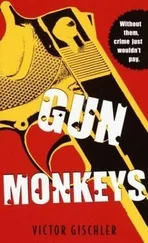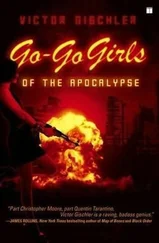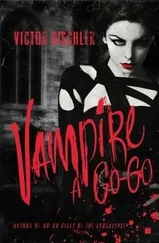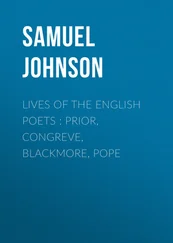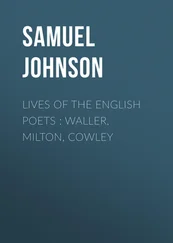Behind him, a toilet flushed. One of the stall doors creaked open. Morgan turned and looked into the bloodshot eyes of Professor Larry Pritcher. He stood stiff, neck still in the brace. The professor had tacked up a “wanted” poster offering a reward for information leading to the person or persons who’d assaulted him with Finnegans Wake.
“Oh, hello, Morgan.” Pritcher talked through clenched teeth. “Hope you don’t mind if I don’t shake hands. I can barely lift my arms.”
“Did they… uh… ever find out who attacked you?” Morgan asked.
“No. I suspect a disgruntled undergraduate. I was rather free with the F’s last semester. My own injuries are of little consequence, but my Italian ten-speed was damaged beyond repair.”
“How’s the reading going?”
“Every poem feels like a punch in the face,” Pritcher said. “I’d go home except for the blizzard. Take care, old boy.”
Pritcher left the men’s room. Morgan splashed more water on his face, scooped some into his mouth, and swallowed. He dried himself with a paper towel.
Back in the lobby he flagged down two kids, torn jeans, skateboarder haircuts. “Who’s reading?”
“Some fag,” said the kid. “It sucks. We’re leaving.”
Wouldn’t that be nice, thought Morgan. To live such a simple life. It sucks. I’m leaving.
He stopped at the door to the auditorium. Maybe he could. Why not? Why couldn’t he just leave? Why should the skateboard kids have more freedom than he? Jones didn’t need him anymore. He’d make or break on his own. The dean expected him to make an appearance. Ostensibly, this was Morgan’s show. It had been his responsibility to get Ellis into shape for the reading. But there was no Ellis. The show, apparently, was a drag and would go down in history as the most embarrassing thing that had ever happened in Green County.
The hell if Morgan would stick around for that. He headed for the door but stopped when he heard the girl with orange hair back at the podium. The first two readers were done, and she was getting reading to introduce the old man.
Okay , Morgan told himself. He’d stay for one poem, see if the old man fainted or what. Morgan could at least do that.
The orange-haired girl said, “I’ve been asked to read this before we introduce our final reader.” She had a card in her hand. “The national weather service has issued a severe storm warning for eastern Oklahoma and parts of western Arkansas. I’ve been told that Fumbee city workers are now getting the plows out of the garages, but it will be a while before the roads are safe for travel.”
A low, hopeless groan rose from the crowd.
“But not to worry,” she said. “We have another fine poet for your entertainment. Originally, Sherman Ellis was scheduled to read, but there’s been a change. I’d like to introduce our next reader, Mr. Fred Jones.”
It took the old man long seconds to cross the stage. He looked ridiculously small and frail from the back of the auditorium. Someone giggled. The old man reached the podium, shuffled his papers, and wiped sweat off his forehead with a bony hand. Morgan’s heart broke a little bit.
He couldn’t quite see the bigwigs in the front row, but Lincoln Truman’s head leaned toward the dean’s. Confused murmurs.
“I’m Fred Jones,” he said into the microphone. He cleared his throat. “My first poem-”
Morgan couldn’t stand it. He closed the door, turned around, and headed for the nearest exit. He felt queasy, guilty. His hand reached for the door and froze when he heard the laughter. Aw hell, they’re laughing him off the stage. Aw, shit.
Go, get out the door, he told himself. You didn’t ask for any of this . But Morgan couldn’t move, couldn’t leave the old man. He went back, flung open the door in the back of the auditorium.
And the cheers washed over him. Students on their feet, howling.
Morgan blinked, rubbed his eyes to see if somehow Metallica had appeared and taken the stage. No. It was the old man. He shuffled his papers again and leaned toward the microphone. “My next poem is called ‘The Zydeco Gangster.’ ” He read:
When I came from Philly to the Big Easy in ’72
in a baby blue Impala full of smack,
I was already pushing gray around the ears.
And I don’t move so quick no more,
and the back gives me trouble,
and the hands are kinkin’ up.
The hands are key.
So when the dagos hired me
to work the Quarter,
I got a big moulie shadow to do the bone work.
The old man’s narrative unfolded. He read it like a pro, voice spinning its magic over the crowd. Morgan too was mesmerized. Jones was a natural. His gift radiated from him like a beacon.
So I went to hear his song
on a humid night in some bayou shithole,
and Che was huffin’ on the accordion,
and another bony moulie
was beating time on a washboard,
and the shuffling, breathless racket
sounded like the time we leaned on Tiny Allen
in the homo bar
at the rotten end of Bourbon.
The poem was sad and sweet and nostalgic, yet comic at the same time. Morgan did not remember this one. It hadn’t been in the stack of papers the old man had handed to him weeks ago.
So I’m talking to Little Mike on the phone
with Big Mike on the extension
and they say everything is jake back in Philly.
I try to explain the zydeco shakedown,
and how it’s so different from
the tearful, slow Pagliacci pleading
when we’d bear down on the mark
like a lumbering toilet-paper mummy
in a Peter Cushing flick,
but they don’t get it.
So I ask Big Mike if he remembers the time
we chopped down the glassblower over on Sullivan the brrrrpt da bript brip chingle chingle bript
when we riddled his display cases with Mac-10s,
the nine-millimeter percussion
the tambourine tinkle of broken glass,
and I think he’s starting to get zydeco.
And we laughed and laughed
and wondered if the Motor City fellas
do it to Smokey Robinson.
The crowd roared, the applause shaking the building. It was right up their alley. A whole generation who’d thought poetry had to be about flowers and bumblebees. Now they’d heard poetry on steroids. Gritty. Extreme poetry like in a Mountain Dew commercial. Morgan stayed to hear three more. The old man’s voice had found strength. Perhaps they enjoyed it for the wrong reasons. Maybe there are no right or wrong reasons. It might not have been the reading Dean Whittaker wanted, but Morgan thought it was beautiful.
Even over the blizzard, Morgan still heard the kids cheering. The snow mixed with a little sleet. Morgan didn’t care, didn’t mind that it stung his face. His smile was a mile wide. Something good and right had finally happened. Morgan ducked his head into the wind, put one foot in front of the other toward Albatross Hall. He wanted to find Valentine, have a drink, toast to Fred Jones’s success. It was after working hours, and the main doors were locked. His keys jingled in his shaking hands. Finally, he found the slot, inserted, turned the key, and pushed the door open. They grabbed him by both arms, rushed him into Albatross Hall, and shoved him to the floor. Morgan hit hard. He flipped over, looked up at ten black men in long coats. All had pistols out. A man in a bright yellow suit pointed down at him. “Stay put, motherfucker.” Morgan nodded. “Okay.” “Anybody else in this building?” “I don’t think so,” Morgan lied. “What’s up there?” The black guy in charge pointed his gun at the ceiling. “Dorms or something?” “Offices.” “What you doing here?” “My office. I left something. A book.” Morgan looked at the guns pointed at him and felt sick. “There’s nothing here of any value. What do you want?” “We’re gonna go upstairs and kill everyone we see.” Morgan gulped. What the hell’s going on? “What you want to do, Zach?” one of them asked. The man in yellow said, “Fan out and search the floor. We’ll work our way up. If Maurice said they were here, then they’ve got to be here someplace.” “We ain’t seen Maurice.” “We’ll find him,” Zach said. “What about this guy?” Zach’s henchman indicated Morgan with a trigger-pulling motion to the head. “Don’t shoot. They’ll hear it upstairs,” Zach said. “Just knock him a good one.” The henchman leaned over Morgan. The butt of his pistol came down sharp and fast across the back of his skull.
Читать дальше


